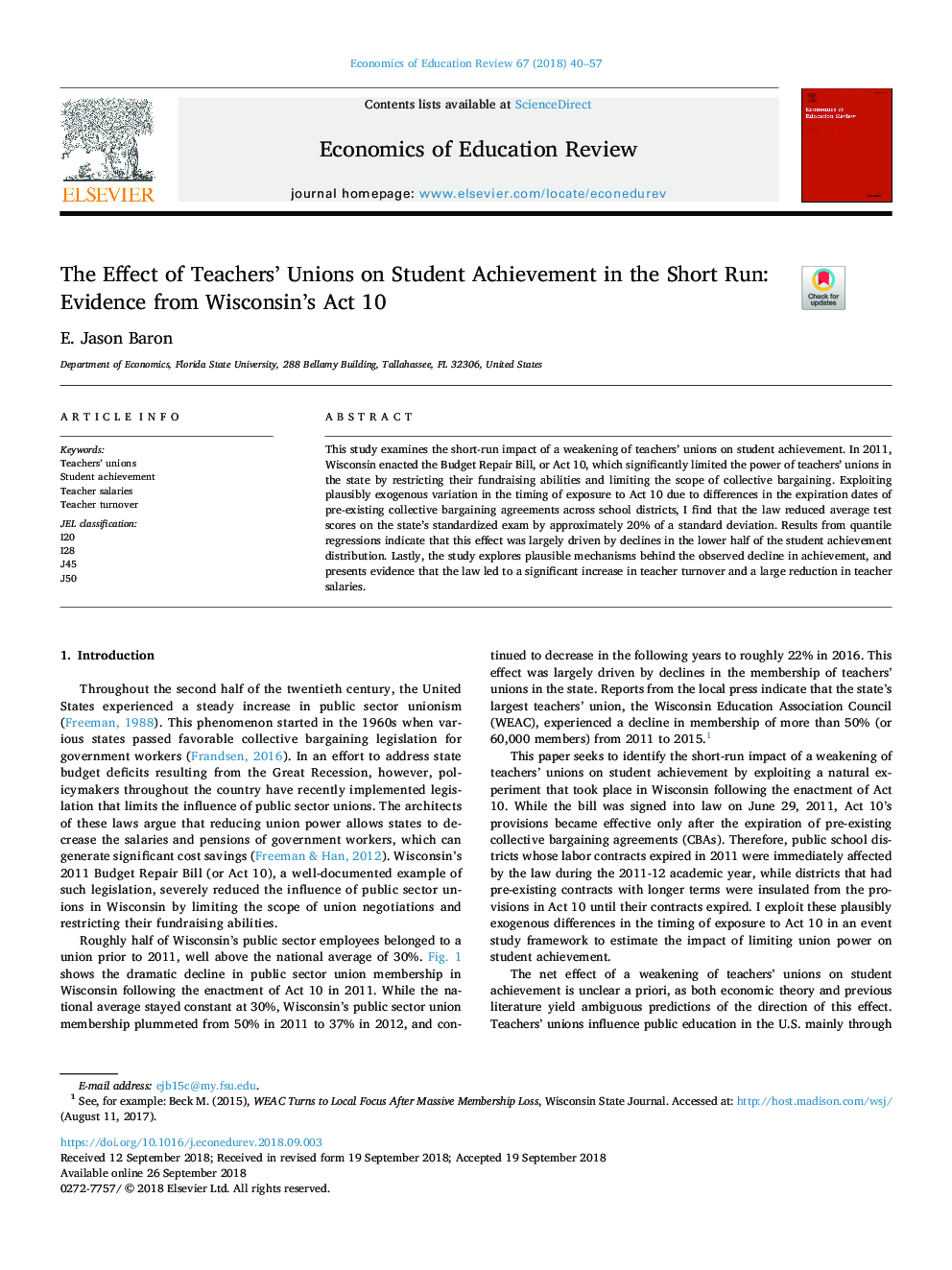| Article ID | Journal | Published Year | Pages | File Type |
|---|---|---|---|---|
| 11021213 | Economics of Education Review | 2018 | 18 Pages |
Abstract
This study examines the short-run impact of a weakening of teachers' unions on student achievement. In 2011, Wisconsin enacted the Budget Repair Bill, or Act 10, which significantly limited the power of teachers' unions in the state by restricting their fundraising abilities and limiting the scope of collective bargaining. Exploiting plausibly exogenous variation in the timing of exposure to Act 10 due to differences in the expiration dates of pre-existing collective bargaining agreements across school districts, I find that the law reduced average test scores on the state's standardized exam by approximately 20% of a standard deviation. Results from quantile regressions indicate that this effect was largely driven by declines in the lower half of the student achievement distribution. Lastly, the study explores plausible mechanisms behind the observed decline in achievement, and presents evidence that the law led to a significant increase in teacher turnover and a large reduction in teacher salaries.
Related Topics
Social Sciences and Humanities
Economics, Econometrics and Finance
Economics and Econometrics
Authors
E. Jason Baron,
